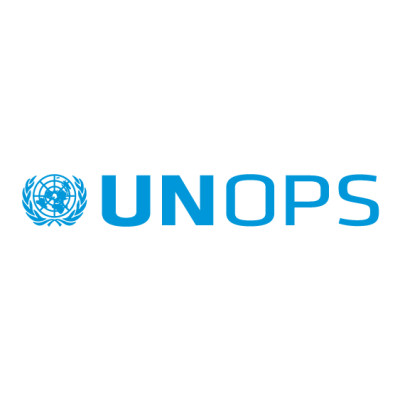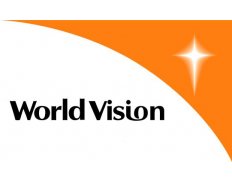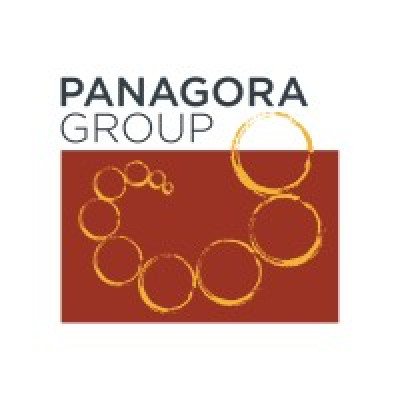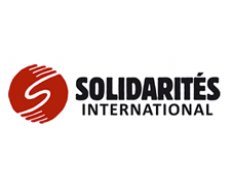Details
Description
UNOPS South East Asia Multi-Country Office (EAPMCO)
The South East Asia and Pacific Multi Country Office (EAPMCO) supports, develops and oversees the UNOPS portfolio of projects in South East Asia and the Pacific. EAPMCO was established in January 2023 following the merger of the Thailand Multi-Country Office, which covered 20 countries across North East Asia, South East Asia and the Pacific, and the Cambodia Multi-Country Office, which covered 4 countries South East Asia - 3 countries in the Mekong Sub-region (Cambodia, Lao PDR and Vietnam) and the Philippines. EAPMCO currently covers 24 countries across North East Asia, South East Asia and the Pacific. With its head office in Bangkok, the Multi-Country Office comprises nine business units: SEMCO Thailand, EAPMCO Indonesia, EAPMCO Pacific Operations Cluster, EAPMCO Papua New Guinea, EAPMCO China, EAPMCO Vietnam, EAPMCO Lao PDR, EAPMCO Philippines and EAPMCO Cambodia.
In 2022, the UNOPS EAPMCO implemented projects worth more than USD 95.7 million, in the areas of Energy Transition, Digital Transformations, Sustainable Environmental Management, Climate Change, Waste Management, Rule of Law and Access to Justice, Water, Sanitation and Hygiene (WASH), Post Conflict Reintegration, Emergency Relief, Post COVID19 Economic Transformations, and Health, through HR, procurement, construction, contract management, fund and program management services.
The Multi Country Office head office in Bangkok provides strategic direction, operational support, delivery oversight and assurance of the excellence of business processes and quality standards across all of the entire Multi Country Office locations. It is also responsible for developing, delivering and managing the portfolio of engagements in the country of the MCO location itself.
UNOPS in the Philippines
Established in 2016, UNOPS Philippines provides expert support to ensure sustainable project management, procurement and infrastructure activities in projects. With funds from the European Union (EU), UNOPS supports the Supreme Court, the Department of Justice, and the Department of the Interior and Local Government under the Governance in Justice (GOJUST) Programme (GOJUST2) through procurement, logistics, and grants management to push forward the justice reform agenda of the Philippine government through innovations and interventions; as well as providing grants to civil society organizations to improve access to justice of marginalized groups. In the Support to the Bangsamoro Transition (SUBATRA) Programme, UNOPS is working with the Bangsamoro Autonomous Region of Muslim Mindanao (BARMM) Government strengthening capacities of the executive, legislative and judicial branches to ensure a smooth transition, also with funds from the EU. In the health sector, UNOPS works with the DOH / ADB in the HEAL project (Health System Enhancement to Address and Limit COVID-19).
UNOPS Philippines is in the process of expanding its area of engagement in cooperation with its development partners, focusing mainly on a portfolio of projects and programs in the infrastructure, logistics management, procurement in health, rule of law, and governance sectors
Background Information - Project
As the UN agency mandated to deliver procurement and project management solutions to government partners to support the 2030 Agenda, UNOPS is proposing to support The Department of Health (DoH) of the Philippines to deliver the Philippines Multisectoral Nutrition Project (PMNP).
UNOPS has been requested to act as a Third-Party procurement Agency (3PPA) to support the centralized purchasing service needs of the PMNP project, in the areas of nutritional commodities, health supplies and advocacy services. Additional support can cover capacity building, project management services and social behavioral change and communication to support the overall project aims.
The Senior Project Manager is responsible for the day-to-day operations of the project(s) and provides services to the different donors, partners and beneficiaries. The Senior Project Manager acts on behalf of the Project Board to manage the project on an ongoing basis during the Implementation Stage. The main responsibility of the Senior Project Manager is to ensure that the project outputs are delivered within the specified project tolerances of time, cost, quality, scope, risk and benefits. They are expected to meet the organization’s performance and delivery goals.
The Senior Project Manager has the authority to assign, as per the Project Plan, work packages to Team Managers and approve deliverables produced by them.
The Senior Project Manager is responsible for creating the Implementation Plan, using the Project Initiation Document (PID), Legal Agreement and having a thorough understanding of the terms, conditions, and the respective roles and responsibilities of the partners/stakeholders, to ensure the project(s) outputs are capable of meeting the business cases for both UNOPS and the partner(s). Success of the project(s) and hence of the Senior Project Manager/Senior Senior Project Manager will be based on the defined Success Criteria.
Under the overall supervision of the Country Manager and in accordance with UNOPS procedures and practices the incumbent will be responsible for the following:
-
Project Delivery and Performance
-
Procedures
-
Monitoring and reporting
-
Stakeholder engagement
-
Quality assurance
-
Knowledge management and innovation
-
Personnel management
1. Project Delivery and Performance
-
Develop, complete and update implementation plan(s).
-
Implement the approved plan (including the establishment of milestones) within tolerances set by the Project Board.
-
Embed sustainability dimensions including social and gender inclusion, environmental and economic aspects into project life span.
-
Manage the production of the required outputs, taking responsibility for overall progress and use of resources and initiating corrective action where necessary.
-
Ensure that quality of work packages and deliverables complies with the quality requirements defined in the Implementation Plan.
-
Liaise with any external suppliers or account managers.
-
Manage acceptance and delivery of work packages.
-
Monitor project progress ensuring that work packages are being executed properly.
-
Control project and work packages changes.
-
Accept goods, services or works delivered by suppliers.
-
Lead contract management duties including supplier performance evaluation.
-
Identify, and anticipate in a timely manner, potential risks and issues and advises mitigating measures to senior management/ Project Board so that maximum benefit to partner(s) and other stakeholders is achieved.
-
Identify and report to the supervisor potential business opportunities for UNOPS.
2. Procedures
-
Comply with all organizational policy and specifically the Project Management Manual.
-
Prepare/adapt all relevant plans for approval by the Project Board.
-
Manage the reporting obligations defined in the Legal Agreement(s) and in the Implementation Plan.
-
Ensure maintenance of the project files and lessons learned are recorded.
-
Manage budgets, cash flow and obligations to ensure that deliverables are met and payments to contractors and personnel are received on time.
-
Understand and manage UNOPS overheads, allocable charges, and related corporate charges as they apply to the project.
-
Understand the unique structures of the UN and budget appropriately for personnel.
-
Manage expenditures against the budget (based on accurate financial reports).
-
Where the Senior Project Manager has no delegation as a committing officer, s/he retains these responsibilities and will monitor and instruct/request others to carry out the relevant commitments and disbursements.
-
For project closure purposes, provide a formal handover of the project to the closure manager.
-
Support project audit activities, including planning, preparation and coordination during the audits and follow up on audit observations/recommendations.
3. Monitoring and Reporting
-
Prepare and issue regular project and/or financial reports in accordance with Partner and UNOPS requirements for reporting.
-
Regularly review project status, evaluating performance criteria (scope, cost, schedule and quality).
-
Maintain diaries and progress reports as required by the organization’s standard procedures.
-
Provide routine oversight and analysis of delivery data within the dashboard system.
-
Ensure all project team members track and regularly update milestones and targets for the duration of projects' life span.
4. Stakeholder engagement
-
Develop stakeholder profiles and facilitate the formulation of stakeholder engagement strategies.
-
Establish solid working relationships with the Project Board (Executive, Senior Users and Senior Suppliers), client and key stakeholders.
-
Enable the formulation of project communications plans. Coordinate internal project communications. Monitor the effectiveness of project communications.
-
Coordinate stakeholder engagement and communication, ensuring effective timing and interdependency management of communications. Ensure stakeholders are aware of project activities, progress, exceptions and are in a position to accept handover outputs.
5. Quality assurance
-
Work with internal stakeholders to ensure projects comply with audit requirements.
-
Work with procurement/purchasing staff to ensure effective interface with suppliers' quality systems.
-
Coordinate quality reviews of project documents and deliverables.
-
Provide quality control for management outputs (project documents, reports, etc.).
6. Knowledge Management and Innovation
-
Encourage routine and effective capacity building activities are conducted in order to build the long-term and sustainable capacity of staff.
-
Actively interact with other Senior Project Managers and the wider PM community to share case studies, lessons learned and best practices.
-
Contribute to the oversight of lessons learned procedures, ensuring that lessons learnt are shared in a timely and appropriate manner. Participate in the relevant Communities of Practice.
-
Research and logging of lessons learned throughout the project life span.
-
Provide feedback to Practice Groups on policy, supporting guidance with an aim towards continuous improvement of UNOPS policies.
7. Personnel Management
-
Lead and motivate the project management team
-
Ensure that behavioral expectations of team members are established
-
Ensure that performance reviews are conducted fairly, accurately and timely
-
Select, recruit and train the team as required and take into account gender parity and diversity objectives.
-
Ensure safety and security for all project personnel and comply with UNDSS standards.
-
Create, foster and role model a culture of respect and zero tolerance for discrimination, abuse of authority, harassment, sexual harassment and sexual exploitation and abuse. Ensure accountability for actions and perform duties in accordance with protection mechanisms and action plans, as expected by UNOPS policies, standards and commitments.
Impact of Results
Senior Project Manager directly impacts on achievement of project results by adhering to project management methods and strategies, reducing risks, cutting costs and improving success rates. This consequently reinforces the visibility and image of UNOPS as an effective service provider in project services and management and strengthens its competitive position as a partner of choice in sustainable development and project services.
| Develops and implements sustainable business strategies, thinks long term and externally in order to positively shape the organization. Anticipates and perceives the impact and implications of future decisions and activities on other parts of the organization. |
| Treats all individuals with respect; responds sensitively to differences and encourages others to do the same. Upholds organizational and ethical norms. Maintains high standards of trustworthiness. Role model for diversity and inclusion. |
| Acts as a positive role model contributing to the team spirit. Collaborates and supports the development of others. Acts as positive leadership role model, motivates, directs and inspires others to succeed, utilizing appropriate leadership styles. |
| Demonstrates understanding of the impact of own role on all partners and always puts the end beneficiary first. Builds and maintains strong external relationships and is a competent partner for others (if relevant to the role). |
| Efficiently establishes an appropriate course of action for self and/or others to accomplish a goal. Actions lead to total task accomplishment through concern for quality in all areas. Sees opportunities and takes the initiative to act on them. Understands that responsible use of resources maximizes our impact on our beneficiaries. |
| Open to change and flexible in a fast paced environment. Effectively adapts own approach to suit changing circumstances or requirements. Reflects on experiences and modifies own behavior. Performance is consistent, even under pressure. Always pursues continuous improvements. |
| Evaluates data and courses of action to reach logical, pragmatic decisions. Takes an unbiased, rational approach with calculated risks. Applies innovation and creativity to problem-solving. |
| Expresses ideas or facts in a clear, concise and open manner. Communication indicates a consideration for the feelings and needs of others. Actively listens and proactively shares knowledge. Handles conflict effectively, by overcoming differences of opinion and finding common ground. |
Education:
-
Advanced University Degree, preferably in International Relations, Development Studies, Political Science, Finance, Economics, Human Resources, Supply Chain Management, Business Administration, Project Management, Public Health or other related fields, is required.
-
First-level university degree (Bachelor’s or equivalent) in combination with two (2) additional years of relevant experience may be accepted in lieu of an advanced university degree.
Certifications:
-
Certification in Project Management (PRINCE2, PMI, etc.) would be an asset.
Experience:
-
Minimum of seven (7) years of working experience in project management, project development, or project operational support in combination with an advanced degree is required.
-
Nutrition and/or Public Health experience in the Philippines is required.
-
Experience in administration, procurement and coordination with multi-stakeholders or related fields is desired.
-
Experience in writing project progress reports, project communications, stakeholder management and M&E frameworks is an asset.
-
Experience working with UNOPS, UN or other humanitarian/development agencies is an asset.
-
Proficiency in computers and Google Office Suite or Google Workspace is desirable.
-
Experience in handling web-based management systems is desirable.
Language:
-
Fluency in oral and written English is required
- Contract type: Local Individual Contract Agreement (IICA)
- Contract level: ICS-11/LICA-11
- Contract duration: Open-ended, subject to organizational requirements, availability of funds and satisfactory performance.
- Duty Station: Manila, Philippines. Manila is a family duty station
For more details about the ICA contractual modality, please follow this link:
https://www.unops.org/english/Opportunities/job-opportunities/what-we-offer/Pages/Individual-Contractor-Agreements.aspx
-
Please note that UNOPS does not accept unsolicited resumes.
-
Applications received after the closing date will not be considered.
-
Please note that only shortlisted candidates will be contacted and advance to the next stage of the selection process, which involves various assessments.
-
UNOPS embraces diversity and is committed to equal employment opportunity. Our workforce consists of many diverse nationalities, cultures, languages, races, gender identities, sexual orientations, and abilities. UNOPS seeks to sustain and strengthen this diversity to ensure equal opportunities as well as an inclusive working environment for its entire workforce.
-
Qualified women and candidates from groups which are underrepresented in the UNOPS workforce are encouraged to apply. These include in particular candidates from racialized and/or indigenous groups, members of minority gender identities and sexual orientations, and people with disabilities.
-
We would like to ensure all candidates perform at their best during the assessment process. If you are shortlisted and require additional assistance to complete any assessment, including reasonable accommodation, please inform our human resources team when you receive an invitation.
Terms and Conditions
-
For staff positions only, UNOPS reserves the right to appoint a candidate at a lower level than the advertised level of the post.
-
For retainer contracts, you must complete a few Mandatory Courses (they take around 4 hours to complete) in your own time, before providing services to UNOPS. For more information on a retainer contract here.
-
All UNOPS personnel are responsible for performing their duties in accordance with the UN Charter and UNOPS Policies and Instructions, as well as other relevant accountability frameworks. In addition, all personnel must demonstrate an understanding of the Sustainable Development Goals (SDGs) in a manner consistent with UN core values and the UN Common Agenda.
-
It is the policy of UNOPS to conduct background checks on all potential personnel. Recruitment in UNOPS is contingent on the results of such checks.






